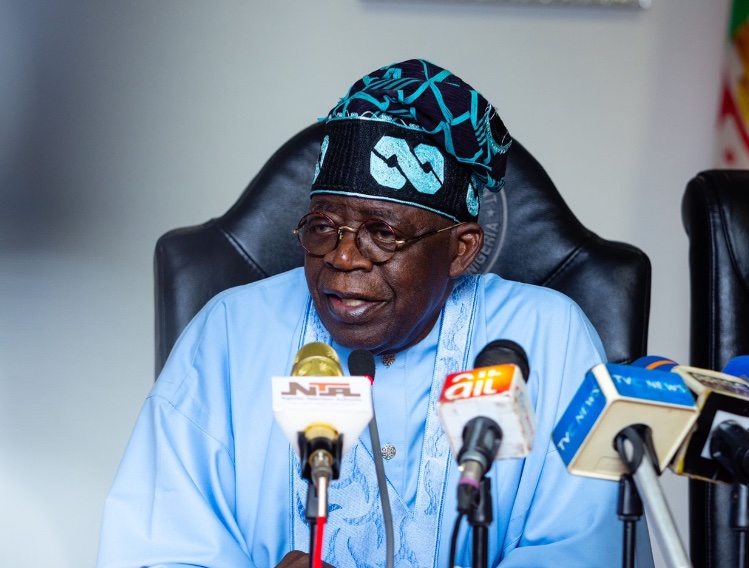- Safiu Kehinde
President Bola Tinubu has reassured Nigerians of his administration’s push towards restoring the country’s economic stability and uplifting Nigerians’ collective hope and aspirations.
Tinubu made this known in a statement marking the second anniversary of his administration on Thursday.
Recall that the President was sworn in on the 29th of May 2023 following his emergence as the winner of the Presidential election.
While appreciating Nigerians for resilience and undaunted spirit, Tinubu recounted the achievements of his administration over the past two years.
Coupled with the removal of fuel subsidy and floating of Naira, Tinubu highlighted other accomplishments of his economic policies inflation drop in inflation and increase in the country’s Gross Domestic Product (GDP) amongst others.
“We are halfway through the journey that began 24 months ago. Today, May 29, 2025, offers our administration the opportunity to share again how far we have gone and our progress in steering our country along the critical path of socio-economic development.
“When we embarked on this journey, propelled by a burst of hope and abiding faith in Nigeria’s unity and progress, I made a pledge before God and fellow countrymen and women to confront Nigeria’s challenges head-on by rebuilding trust, fostering prosperity, and restoring our nation’s economic health.
“Today, I proudly affirm that our economic reforms are working. We are on course to building a greater, more economically stable nation.
“Despite the bump in the cost of living, we have made undeniable progress.
“Inflation has begun to ease, with rice prices and other staples declining.
“The oil and gas sector is recovering; rig counts are up by over 400% in 2025 compared to 2021, and over $8 billion in new investments have been committed.
“We have stabilised our economy and are now better positioned for growth and prepared to withstand global shocks.
“In 2025, we remain on track with our fiscal targets. Gross proceeds per barrel from crude oil are broadly aligned with our forecasts as we intensify our efforts to ramp up production.
“Our fiscal deficit has narrowed sharply from 5.4% of GDP in 2023 to 3.0% in 2024. We achieved this through improved revenue generation and greater transparency in government finances. In the first quarter of this year, we recorded over N6 trillion in revenue.” The President said.
While noting that the country now have a strong fuel supply security through local refining, Tinubu also claimed that the country’s debt profile has drastically reduced with some debts already paid off.
“We have discontinued Ways & Means financing, which has been a major contributor to high and sticky inflation. The NNPC, no longer burdened by unsustainable fuel subsidies, is now a net contributor to the Federation Account. We are also achieving fuel supply security through local refining.
“Our debt position is improving. While foreign exchange revaluation pushed our debt-to-GDP ratio to around 53%, our debt service-to-revenue ratio dropped from nearly 100% in 2022 to under 40% by 2024. We paid off our IMF obligations and grew our net external reserves by almost 500% from $4 billion in 2023 to over $23 billion by the end of 2024.
“Thanks to our reforms, state revenue increased by over N6 trillion in 2024, ensuring that subnational governments can reduce their debt burden, meet salaries and pension obligations on a timely basis, and invest more in critical infrastructure and human capital development.” He said.
The President stated that his administration’s biggest achievement is the tax reform agenda which by the end of 2024 saw the tax-to-GDP ratio rose from 10% to 13.5%>
This< according to him, results from deliberate improvement in tax administration and policies designed to make the tax system fairer, more efficient, and more growth-oriented.
He also disclosed that a new national fiscal policy will soon be introduced to guide the administration’s approach to fair taxation, responsible borrowing, and disciplined spending.
Tinubu maintained that the reforms are designed to reduce the cost of living, promote economic justice, and build a business-friendly economy that attracts investment and supports every Nigerian.


